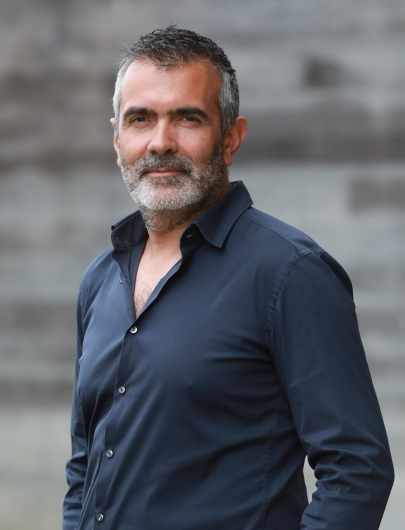Antoine AielloEcological engineering at the service of the sea
“I am guided by a vision of the world where the sensible exploitation of natural resources, accompanied by scientific innovation, aligns harmoniously with the environmental, social and cultural specificities of a territory,” says Antoine Aiello, who himself comes from a family of fishermen, and is a specialist in modelling and behavioural simulations of complex systems. His research vision gave rise to the Stella mare1
platform dedicated to marine and coastal ecological engineering, which he created and now heads.
Approved by the CNRS in 2011, Stella mare brings together scientists, marine professionals, environmental managers and institutional stakeholders to achieve integrated management of fisheries resources. The goal is to control the reproduction and rearing of “engineered” species that are remarkable from an ecological and/or socio-economic point of view. One example is the flat oyster, a species that Corsican growers had not managed to cultivate until now. 500,000 are growing in the ‘Etang de Diana,’ and that number is expected to increase to 4 million in 2022. These oysters were also introduced in Bastia harbour, and scientists have shown that they can ‘bio-clean’ the equivalent of the port’s water volume in one week. Whether for maintaining stocks, ecological restoration and exploiting ecosystemic services, Stella mare uses original promotion paths, with the aim of spearheading the creation of a blue bioeconomy far beyond Corsica.
- 1CNRS/Université de Corse Pasquale-Paoli.
